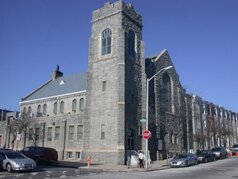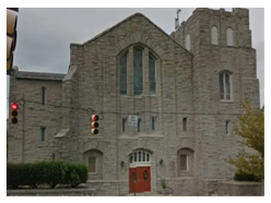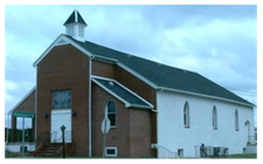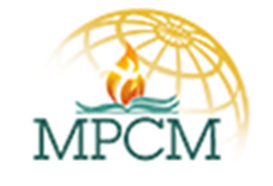Diabetes Prevention Programs (DPPs)
It is the mission of the Brancati Center to expand access to the Diabetes Prevention Program (DPP)
across Baltimore City, the State of Maryland, and beyond.
across Baltimore City, the State of Maryland, and beyond.
Who is eligible for the DPP?
Persons with
Prediabetes: Hemoglobin A1c 5.7-6.4% or fasting blood sugar 100-125 mg/dl
OR
History of gestational diabetes (diabetes during pregnancy) - for persons with Medicaid
AND
Elevated body mass index (BMI): 25 kg/m2 or greater (23 or greater if Asian)
Prediabetes: Hemoglobin A1c 5.7-6.4% or fasting blood sugar 100-125 mg/dl
OR
History of gestational diabetes (diabetes during pregnancy) - for persons with Medicaid
AND
Elevated body mass index (BMI): 25 kg/m2 or greater (23 or greater if Asian)
Are you interested in joining one of our DPPs?
Our Community Partners
What is the Diabetes Prevention Program?
A yearlong lifestyle change program focused on healthier nutrition, increased physical activity, and weight loss
Goals of the Diabetes Prevention Program
At least 5% weight loss at 12 months
At least 150 min/week of physical activity
At least 0.2% reduction in hemoglobin A1c
A yearlong lifestyle change program focused on healthier nutrition, increased physical activity, and weight loss
Goals of the Diabetes Prevention Program
At least 5% weight loss at 12 months
At least 150 min/week of physical activity
At least 0.2% reduction in hemoglobin A1c
You can also call or email us to learn more about the DPP:
Phone: 410-614-2701
Email: brancaticenter@jhmi.edu
Phone: 410-614-2701
Email: brancaticenter@jhmi.edu
There are no out of pocket costs for most participants. Please note that we will bill Medicare, Medicaid, or EHP insurance if you have it.
Together, we have the Power to Stop Diabetes!
Watch our videos to learn more
Watch our videos to learn more
|
|
|
Why the Diabetes Prevention Program?
Due to the high prevalence of type 2 diabetes in America and consistent with Dr. Brancati's work, one of our first areas of focus was mobilization of communities and providers to implement a diabetes prevention program. Type 2 diabetes is a devastating disease for our community, but it is preventable. As part of the Centers for Disease Control's National Diabetes Prevention Program, the Brancati Center has partnered with our community to provide a 12-month lifestyle change program that is proven to prevent type 2 diabetes. The program has rigorous requirements which include attendance at the program's sessions for 12 months, self-monitoring of physical activity, and 5% weight loss.
In partnering with community-based organizations to deliver these programs, we have found that we can increase access and participation, provide skills training for our community coaches, develop community-based approaches to healthier living, and reduce diabetes risk. More than 160 people have enrolled in the year long in-person program; have attended more than 80% of sessions; and have lost an average of 5.6% of their initial weight.
Due to the high prevalence of type 2 diabetes in America and consistent with Dr. Brancati's work, one of our first areas of focus was mobilization of communities and providers to implement a diabetes prevention program. Type 2 diabetes is a devastating disease for our community, but it is preventable. As part of the Centers for Disease Control's National Diabetes Prevention Program, the Brancati Center has partnered with our community to provide a 12-month lifestyle change program that is proven to prevent type 2 diabetes. The program has rigorous requirements which include attendance at the program's sessions for 12 months, self-monitoring of physical activity, and 5% weight loss.
In partnering with community-based organizations to deliver these programs, we have found that we can increase access and participation, provide skills training for our community coaches, develop community-based approaches to healthier living, and reduce diabetes risk. More than 160 people have enrolled in the year long in-person program; have attended more than 80% of sessions; and have lost an average of 5.6% of their initial weight.
Working Together to Fight Diabetes in Baltimore
Dr. Marshall F. Prentice, Pastor of Zion Baptist Church, and Pastor William E. Johnson, Jr, Community Chaplain at Johns Hopkins Medicine, emphasize the importance of the Diabetes Prevention Program for the Baltimore community:
“The faith community has at the core of its mission the call to lead the faithful in the path of holistic health. This means we care about the mind, body and souls of individuals. Having witnessed the damage diabetes can do to the body, mind and spirit, we believe the diabetes prevention program will be an invaluable tool for helping the Baltimore community combat this disease that has historically caused great suffering and loss, including premature deaths. When it comes to diabetes the old saying is true, ‘An ounce of prevention is worth a pound of cure.’”
A new $43 million initiative is about to change the lives of many Baltimore residents at risk for diabetes. In November 2020, the Maryland Health Services Cost Review Commission (HSCRC) awarded the Johns Hopkins Health System and the University of Maryland Medical Center funding to create the Baltimore Metropolitan Diabetes Regional Partnership, which will increase access to diabetes prevention services and education through community-based programs. Johns Hopkins will use a portion of the HSCRC grant to expand the Brancati Center’s diabetes prevention program, the first diabetes prevention program in the city achieving full recognition by the Centers for Disease Control.
“When the Brancati Center started working with our community partners in East Baltimore in 2015, we only dreamed that we would one day see diabetes prevention programs across the entire city. With this HSCRC grant, we will get there.”
--Nisa Maruthur MD, Director of Community Program Implementation, Brancati Center
The success of the Brancati Center’s diabetes prevention program has much to do with their commitment to strong partnerships with local organizations such as churches and recreation centers. By building support and trust within Baltimore City communities, the program continues to show astounding results. Since 2015, 1,136 people have started this yearlong program, 71% have completed it with an average of 89% attendance across 33 sessions. 60% of our participants have met at least one CDC goal for risk reduction. The center also managed to find creative ways to remain connected with participants during the pandemic, providing remote diabetes prevention programs with 94% attendance. With the funding from the HSCRC grant, these services can extend across even more communities in need.
Dr. Marshall F. Prentice, Pastor of Zion Baptist Church, and Pastor William E. Johnson, Jr, Community Chaplain at Johns Hopkins Medicine, emphasize the importance of the Diabetes Prevention Program for the Baltimore community:
“The faith community has at the core of its mission the call to lead the faithful in the path of holistic health. This means we care about the mind, body and souls of individuals. Having witnessed the damage diabetes can do to the body, mind and spirit, we believe the diabetes prevention program will be an invaluable tool for helping the Baltimore community combat this disease that has historically caused great suffering and loss, including premature deaths. When it comes to diabetes the old saying is true, ‘An ounce of prevention is worth a pound of cure.’”
A new $43 million initiative is about to change the lives of many Baltimore residents at risk for diabetes. In November 2020, the Maryland Health Services Cost Review Commission (HSCRC) awarded the Johns Hopkins Health System and the University of Maryland Medical Center funding to create the Baltimore Metropolitan Diabetes Regional Partnership, which will increase access to diabetes prevention services and education through community-based programs. Johns Hopkins will use a portion of the HSCRC grant to expand the Brancati Center’s diabetes prevention program, the first diabetes prevention program in the city achieving full recognition by the Centers for Disease Control.
“When the Brancati Center started working with our community partners in East Baltimore in 2015, we only dreamed that we would one day see diabetes prevention programs across the entire city. With this HSCRC grant, we will get there.”
--Nisa Maruthur MD, Director of Community Program Implementation, Brancati Center
The success of the Brancati Center’s diabetes prevention program has much to do with their commitment to strong partnerships with local organizations such as churches and recreation centers. By building support and trust within Baltimore City communities, the program continues to show astounding results. Since 2015, 1,136 people have started this yearlong program, 71% have completed it with an average of 89% attendance across 33 sessions. 60% of our participants have met at least one CDC goal for risk reduction. The center also managed to find creative ways to remain connected with participants during the pandemic, providing remote diabetes prevention programs with 94% attendance. With the funding from the HSCRC grant, these services can extend across even more communities in need.
Interested in how your church or community-based organization can work with us on the DPP?









